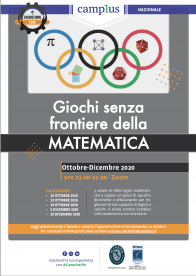Playful Learning
Playful learning is a dynamic approach that integrates fun and engaging activities into the educational process, fostering a deeper and more enjoyable learning experience. This methodology is particularly effective in engineering education, where complex concepts can be made more accessible through interactive and immersive activities.
The Matabì project exemplifies this approach by enhancing spatial abilities and reducing the gender gap in mathematics through construction play with building toys and LEGO Duplo brick sets. The project, involving around 200 classes in Torino, uses Randomized Control Trials (RCT) to evaluate its impact. Early findings show significant improvements in spatial abilities among both teachers and students, especially benefiting female students.
The CIAO (Corso Interattivo di Accompagnamento Online) initiative also incorporates playful learning elements, such as an online escape room designed to test students' prerequisite knowledge. This innovative approach provides interactive and engaging ways to strengthen mathematical skills and improve readiness for engineering coursework.
The SMaILE (Simple Methods for Artificial Intelligence Learning and Education) project addresses the educational gap in AI literacy for adolescents aged 10 to 18. The SMaILE-App, a cross-platform educational tool, promotes AI literacy through interactive gameplay. Designed with a constructionist educational framework, the app includes a suite of minigames focused on different AI concepts and interactive modules that blend entertainment with personalized knowledge acquisition. The app aims to correct gender disparities in STEM by making AI education more inclusive and engaging for all students.
The Game without Frontiers project supports the learning of mathematical concepts through games, particularly focusing on the basics of Mathematical Analysis 1. Competitions can be held in person or online and vary from structured to informal formats. Since the 2019/20 academic year, a collaboration with Collegio "Camplus" has facilitated events such as the "Giochi senza frontiere della Matematica," which involved first-year students from all Italian Camplus. These online matches, held during the 2020/21 academic year, focused on specific math themes each night.
The STEMM Games course is designed to reinforce soft skills within applied STEM fields through a series of meticulously crafted games. Conducted at Collegio R. Einaudi and Collegio CAMPLUS, this course engages students in diverse STEM disciplines, enhancing self-awareness, collaboration, and engagement. Evaluations include quantitative data from the Soft Skills Self-evaluation Questionnaire (3SQ), game data analysis, and qualitative insights from post-course questionnaires and focus groups. The results highlight improvements in teamwork, problem-solving skills, and nuanced perceptions of individual strengths and weaknesses.
These projects demonstrate the power of playful learning in making complex subjects more accessible and enjoyable, thereby enhancing student engagement and learning outcomes in engineering education. By integrating fun and interactive elements into the curriculum, Politecnico di Torino fosters a more inclusive and effective educational environment.
Publications
2024-
Unlocking AI Literacy: The SMaILE-App Gaming Experience
Proceeding
Franco, Santiago; Ballatore, MARIA GIULIA; Bernardini, Sara; Como, Giacomo; Damonte, Luca; Neacsu, Alexandra; Vanelli, Martina
In: Titolo volume non avvalorato
IEEE
2024 IEEE Gaming, Entertainment, and Media Conference (GEM) (Torino (ITA)) June 5-7, 2024
pp.6 ISBN:9798350374537 -
Enhancing Soft Skills in Applied STEM Fields Through Games
Proceeding
Ballatore, MARIA GIULIA; Tabacco, Anita
In: IEEE EDUCON 2024 conference proceedings
IEEE
IEEE Global Engineering Education Conference (EDUCON) (Kos (Greece)) 8-11/05/2024
pp.5 ISBN:9798350394023 DOI:10.1109/EDUCON60312.2024.10578857 -
Teaching the principles of artificial intelligence to Generation Z
Book chapter
Ballatore, Maria Giulia; Bernardini, Sara; Como, Giacomo; Damonte, Luca; Franco, Santiago; Neascu, Alexandra; Vanelli, Martina
School Children and the Challenge of Managing AI Technologies
Routledge
pp.12 (pp.223-234) ISBN:9781032694283 DOI:10.4324/9781032694283-23
-
Spatial abilities and the gender gap in mathematics (Matabì)
Proceeding
Ballatore, MARIA GIULIA; Di Liberto, Adriana; Genova, Chiara; Giua, Ludovica; Romano, Barbara; Tabacco, Anita Maria
In: MEasurement in STEM Education
Università di Napoli Federico II
MESE1 (Napoli) 30/01-01/02/2023
pp.2 -
Maths Games without Frontiers
Proceeding
Ballatore, MARIA GIULIA; Damonte, Luca; Tabacco, Anita Maria
In: To Be or Not to Be a Great Educator, 2022. Proceedings of ATEE Annual Conference.
University of Latvia - Latvijas Universitāte (ESTONIA)
To Be or Not to Be a Great Educator, 2022 (Riga) August 29-31, 2022
pp.10 (pp.642-651) ISBN:9789934360190 DOI:10.22364/atee.2022.43
Total: 5


